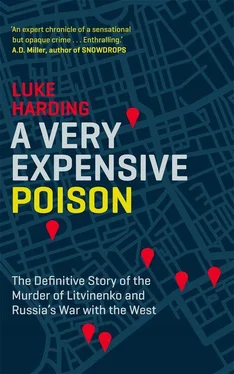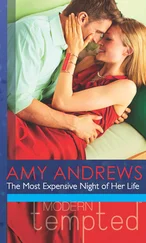They were withering, in the kind of remorseless language rarely heard in the High Court. Berezovsky, we learned, had destroyed himself early on in the witness box. ‘On my analysis of the entirety of the evidence, I found Mr Berezovsky an unimpressive and inherently unreliable witness, who regarded truth as a transitory, flexible concept, which could be moulded to suit his current purposes,’ the judge said.
Berezovsky clutched his face. She continued: ‘At times the evidence which he gave was deliberately dishonest; sometimes he was clearly making his evidence up as he went along in response to the perceived difficulty in answering the questions in a manner consistent with his case.
‘At other times, I gained the impression that he was not necessarily being deliberately dishonest, but had deluded himself into believing his own version of events. On occasions he tried to avoid answering questions by making long and irrelevant speeches, or by professing to have forgotten facts which he had been happy to record in his pleadings or witness statements.’
Berezovsky had been right about one thing. Abramovich had charmed the judge. She concluded that Abramovich was a ‘truthful and on the whole reliable witness’ – one who gave ‘careful and thoughtful answers, which were focused on the specific issues about which he was questioned’.
The judge even absolved Putin of wrongdoing. She said that there was no evidence that Putin had bullied Berezovsky into selling his TV station, a remark that prompted laughter and incredulity from Russians sitting in the back row. Putin had held a grudge against the British judicial system ever since it granted Berezovsky asylum. Now it had delivered Putin a glorious victory.
A stunned Berezovsky appeared on the pavement in front of the cameras. The judge had tried to rewrite Russian history, he said, adding that his faith in the system had been badly shaken. Had he expected to win? ‘Absolutely.’ Berezovsky said he hadn’t yet decided whether to appeal – a tricky step, given the judge’s devastating comments. ‘I’m absolutely amazed what happened today. I’m surprised completely,’ he said.
He quoted Winston Churchill, who said that democracy was bad but that nobody had devised a better alternative. He said: ‘English court is bad but there is nothing better.’ The oligarch said he didn’t regret bringing the case. He even attempted a note of stoicism, observing: ‘Life is life.’ He left in a black Mercedes.
Berezovsky had suffered a grievous blow. But friends pointed to his enormous appetite for life, politics and intrigue. They mentioned his love of women, and his wealth. His fortune was now much diminished. But he was still rich. They thought he would recover.
* * *
Gloster’s verdict was peculiar. Juridically it was perhaps unanswerable. Berezovsky had contradicted himself in the witness box; any court would take a dim view of lying. For those who knew Russia in the 1990s, though, it seemed strange. There were no bad guys and good guys at that time; the privatisations that benefited a small group of oligarchs were surely all dubious and done at the expense of ordinary Russians; the absence of documentation from this period was unsurprising.
Berezovsky’s friends felt an injustice had taken place. They considered appealing. Nikolai Glushkov, who gave evidence for Berezovsky, thought the judgment was deeply one-sided. He complained to the court authorities, without success. Frustrated, he showed me the letter he’d got by way of brush-off. Dubov took a slightly different view. He felt Berezovky had told the truth, broadly, but that much of the detail was wrong or invented retrospectively.
It was ironic. An English court had achieved something the Kremlin had been trying to do for a decade – shut down Berezovsky’s anti-Putin London operation. As a result of his diminished wealth, Goldfarb closed down the International Foundation for Civil Liberties. Over twelve years it had disbursed $75 million on various causes – grants to the Sakharov museum in Moscow; full-page newspaper adverts depicting Putin as Groucho Marx during the 2006 G8 summit; Litvinenko’s London rent.
The immediate casualty was Marina Litvinenko, whose legal costs Berezovsky had underwritten. She was faced with a problem. Where to find £300,000 so she could be represented at a forthcoming inquest into her husband’s death? I agreed to help; we shot a video at the Guardian ’s office. Marina told me she wanted to hang on to her legal counsel so she might uncover the truth behind the murder. ‘I’m very grateful for all these things Berezovsky did for us. For six years he supported us,’ she said.
By end of the year there was no word from Berezovsky himself as to whether he would appeal. In the past, Berezovsky had been happy to give interviews. As a result of his loss to Abramovich he’d ceased to be a public and political figure. He was uncharacteristically dormant. Sometimes he answered his mobile; more often he didn’t. (I reached him once and he agreed to meet, but we never fixed a date.) He sold his home in Wentworth, Surrey – he faced £100 million in legal bills – and moved into his ex-wife Galina Besharova’s place near Ascot in Berkshire.
Previously, Berezovsky had slept just four hours a night. He had thrown himself into multiple projects, exhausting all those around him. He travelled regularly to Israel and South Africa. In the wake of defeat, his world shrank. He would come down from his bedroom for breakfast, return to his room, and not emerge again until mid-afternoon. Friends suspected the verdict had sent him into a psychological decline; his normal energy and joie de vivre gone.
By early 2013, Berezovsky’s family – two ex-wives, one ex-partner and six children – felt he was in better shape. He had, they thought, thrown off his depression. In February, Glushkov emailed me to say that he had quarrelled with Boris, but added that he was ‘most positive’ his friend would be ‘back in public life’ later that year.
In late March, his bodyguard, Avi Navama, went off to do some shopping, leaving Berezovsky alone in the Surrey house. It was a Saturday afternoon. Navama is an Israeli former special forces soldier. He’d spent six years living with Berezovsky and was at his side during the High Court hearings. Navama returned at 3 p.m. There was no sign of his boss. He saw Berezovsky’s mobile phone lying on the table. There were missed calls. This was unusual. He went upstairs to the bathroom. No sound. The door was locked from the inside.
Navama kicked open the door. Inside, he found Berezovsky lying on the floor, his favourite black scarf twisted around his neck. The neck showed bruising. Next to Berezovsky was a broken shower rail. Navama touched Berezovsky’s hand. It was cold. He retreated from the bathroom, shut the door behind him and rang the police.
By the time Berezovsky’s ex-wife Galina arrived at the house, officers from Thames Valley Police were already there; they kept her, her two children and Navama downstairs in the kitchen. Berezovsky’s friend Dubov arrived at 5 p.m. The police wouldn’t allow him inside, so he sat on the road in a police car for the next twelve hours, awaiting news.
Berezovsky’s death, in a secluded estate in south-east England, prompted a full-scale investigation. After Litvinenko’s murder, the police were taking no chances. A paramedic, John Pocock, examined Berezovsky’s body on the bathroom floor. Pocock was carrying a radiation detection device. It gave off a ‘warning tone’. Detectives later said the device had a battery fault.
Government atomic energy scientists tested samples taken from Berezovsky for radioactivity. They were sent to the Atomic Weapons Establishment in Aldermaston. They found no traces.
Читать дальше












